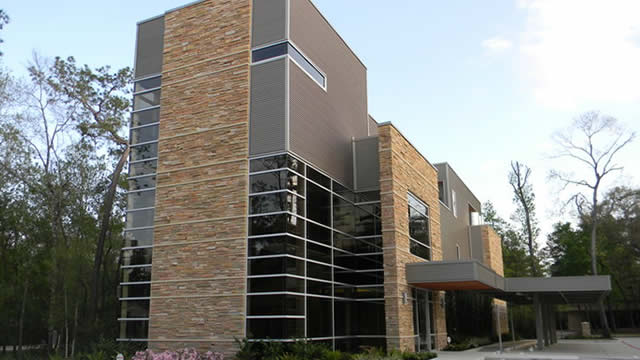
AvalonBay Communities, Inc. (AVB)

AvalonBay Communities, Inc. (AVB) Presents at Citi's Miami Global Property CEO Conference 2026 Transcript
AvalonBay Communities, Inc. (AVB) Presents at Citi's Miami Global Property CEO Conference 2026 Transcript

The Smart Money Is Buying REITs, These Could Be Next
REITs trade at deep discounts to private real estate values. Private equity buyouts highlight significant hidden upside. I discuss the next potential REIT buyout targets.

AvalonBay Communities, Inc. (AVB) Q4 2025 Earnings Call Transcript
AvalonBay Communities, Inc. (AVB) Q4 2025 Earnings Call Transcript

AvalonBay Q4 FFO Tops Estimates, Revenues Grow Y/Y, Dividend Raised
AVB beats Q4 2025 core FFO estimates as same-store NOI and occupancy improve, though higher interest expenses weigh on results.

AvalonBay (AVB) Q4 Earnings: Taking a Look at Key Metrics Versus Estimates
While the top- and bottom-line numbers for AvalonBay (AVB) give a sense of how the business performed in the quarter ended December 2025, it could be worth looking at how some of its key metrics compare to Wall Street estimates and year-ago values.

AvalonBay Communities (AVB) Beats Q4 FFO Estimates
AvalonBay Communities (AVB) came out with quarterly funds from operations (FFO) of $2.85 per share, beating the Zacks Consensus Estimate of $2.84 per share. This compares to FFO of $2.8 per share a year ago.

How Are Residential REITs Positioned Ahead of Q4 Earnings?
ESS, MAA, AVB, EQR and CPT are expected to report Q4 results, shaped by slower rent growth, elevated supply and uneven regional demand.

What to Expect From AvalonBay Communities Stock in Q4 Earnings?
AVB's Q4 earnings likely to reflect slowing rent growth, rising costs and a trimmed FFO outlook, even as revenues are expected to rise.

AvalonBay: Apartment Market Challenges Persist
AvalonBay Communities remains a "Hold" as apartment REITs face persistent rent declines and weak demand, despite moderating supply. AVB's strong balance sheet and capital allocation, including $488 million in buybacks and property sales, underpin dividend stability and financial flexibility. Core FFO guidance for 2025 is $11.23–$11.28, with 2.5%–3.5% growth expected in 2026, below consensus due to muted demand recovery.

Buy The Dip: 2 REITs Trading At Extreme Discounts
Some REIT sectors recently suffered a dip. This includes self-storage and apartment REITs. I discuss my top picks.

AvalonBay Communities, Inc. (AVB) Q3 2025 Earnings Call Transcript
AvalonBay Communities, Inc. ( AVB ) Q3 2025 Earnings Call October 30, 2025 1:00 PM EDT Company Participants Matthew Grover Benjamin Schall - President, CEO & Director Kevin O'Shea - Executive, CFO & Treasurer Sean Breslin - Chief Operating Officer Matthew Birenbaum - Chief Investment Officer Conference Call Participants Jana Galan - BofA Securities, Research Division Steve Sakwa - Evercore ISI Institutional Equities, Research Division Nicholas Joseph - Citigroup Inc., Research Division John Pawlowski - Green Street Advisors, LLC, Research Division Adam Kramer - Morgan Stanley, Research Division Austin Wurschmidt - KeyBanc Capital Markets Inc., Research Division James Feldman - Wells Fargo Securities, LLC, Research Division John Kim - BMO Capital Markets Equity Research Richard Hightower - Barclays Bank PLC, Research Division Alexander Goldfarb - Piper Sandler & Co., Research Division Michael Stefany - Mizuho Securities USA LLC, Research Division Ami Probandt - UBS Investment Bank, Research Division Alex Kim - Zelman & Associates LLC Presentation Operator Good afternoon, ladies and gentlemen, and welcome to AvalonBay Communities Third Quarter 2025 Earnings Conference Call. [Operator Instructions] Your host for today's conference call is Matthew Grover, Senior Director of Investor Relations.

AvalonBay Q3 FFO & Revenues Miss Estimates, '25 Outlook Lowered
AVB's Q3 results fall short of estimates, prompting the REIT to trim its 2025 outlook despite steady rent and occupancy gains.








